Introduction
Do you struggle with any of the following health issues?
🍲 Food sensitivities
🌲 Environmental sensitivities
😩 Skin issues
😴 Fatigue
🧠 Brain fog
😯 An autoimmune condition
If so, this week's Goodness Lover podcast episode is for you! Did you know that all of these conditions and symptoms could all be the result of intestinal permeability (aka ‘leaky gut’)? 🦠
This week, we sat down with Dr. Liz Lipski — Doctor of Clinical Nutrition, Director of Academic Development, Nutrition & Integrative Health at Maryland University of Integrative Health, and author of "Digestive Wellness," "Digestion Connection," "Digestive Wellness for Children," and "Leaky Gut Syndrome" — to talk about leaky gut, what it is, how to diagnose it, what it does in the body, and so much more!
Watch the Interview:
Dr. Lipski explained:
😮 The fascinating connection between your gut lining and bodywide health
〰 How the structure of the gut lining makes it susceptible to ‘leakiness’
💊 How chemicals, NSAIDs, poor diets, and lack of sleep and exercise can influence the gut lining
🥼 The best ways to diagnose and treat leaky gut
And much more that can help you protect your gut! 🎙
Additional Resources
To connect with Dr. Liz Lipski and discover more of her work, you can find her on Instagram and Facebook. You can also visit her website here. You can also visit her second website here.Transcript
Sarah: Hello and welcome back to the Goodness Lover Show. Today, we'll be talking all about leaky gut. What is it? How do you diagnose it? What does it cause in your body? And so much more. We'll be sitting down with Dr. Liz Lipski, who has a PhD in clinical nutrition, is multiple board certified, author of many books on gut health, digestive wellness, and peer reviewed journals. So she has a wealth of experience. She's been studying this for decades. So I hope you enjoy the wisdom that she imparts to us today. Let's get into it.
Matt: Dr. Liz Lipski, we are so excited for you to join us on the show. Thanks for coming on.
Dr. Liz Lipski: It's my pleasure. It's always fun to be with the two of you.
Matt: Great. Well, you've been talking about the microbiome probably around the same time that we were in nappies. The last time we had a Q&A with our community, you were just like, "So yeah, in the 90s..." And we were just like, "What year did you start learning about the microbiome?" You were like, "Early 90s." Right. Yeah. We were barely just... We just getting our numbers right at that point. So you have so much to share. We're very excited. And actually, you're featuring a lot in our upcoming docuseries The Gut Immune Solution, so that's very exciting. So you have so much to share, really, and we know our community loves learning more about leaky gut. And I'm gathering from all those decades of experience of diving into the microbiome, you've got some exciting things to share.
Matt: So let's start off. When did you first start learning about leaky gut? Is it something that's been around for a long time? Or is it you were just, when the microbiome was... I guess everyone was geeking out at the microbiome at the same time and it came up then? When did you first hear about leaky gut?
Dr. Liz Lipski: Again, when you were little kids. So the term leaky gut, or increased intestinal permeability, came across my attention in the early 1990s. The term leaky gut syndrome was actually coined by Dr. Steven Barrie, who was the first owner of what's now Genova Diagnostic Labs. He founded that laboratory, and he and the lab used to have these wonderful conferences, and he dubbed it leaky gut. So that's where that term came from. And in 1998, I wrote a little booklet that's still available on leaky gut. It was my second book.
Matt: Awesome. So what inspired you to... Obviously, you learned about it at these conferences. And then you were like, okay, I've got to write a book on this. What was so interesting about it? What were you seeing? Were you seeing it in practice when you were dealing with patients, that this was a really a common thing? What was the story behind that?
Dr. Liz Lipski: It is a really common thing. And when you start recognizing it in people, then it's one of those pattern recognition pieces that you go, aha. I see this in this person sitting in front of me and we know what to do with it. And I think it's so critically important. I was listening to Dr. Wendy Romig and your interview with her before we got on. She's a former student of mine and a colleague. And when digestion doesn't work right, nothing works right.
The small intestines specifically, it's got a dual function. Its function is to take food molecules and other molecules that come in with our food and bring those into the body so that the cells can use them. And then its other function is just opposite of that. It's paradoxical. It's like, no, you don't get to come through. You're too big or you're too toxic or you're too inflammatory. You don't get to come through. And so when that barrier, which is really the barrier from outer digestion, which is we've eaten it, but it's not in our bloodstream yet, it's still in that digestive hose that's our intestines. Once it comes into the body, into the bloodstream, then we have a whole different relationship with those molecules. And that's where they can cause a lot of inflammation and can have really systemic effects.
Sarah: So before, you mentioned that you now see the pattern in so many of your patients. What would you say is the tell-tale signs of leaky gut that you commonly see?
Dr. Liz Lipski: One would be lots of food sensitivities, environmental sensitivities. Looking at skin issues, so people with eczema, psoriasis, other skin rashes, hives. Looking for people who just feel fatigued, brain fog. People with autoimmune conditions, you can pretty much assume that they at least started with leaky gut. Pretty much every single autoimmune disease that has been studied, people had increased intestinal permeability. So when you start looking at that, and when we look at graphs of autoimmune conditions just globally, they're just skyrocketing.
And so this barrier, it's only one molecule thick. So when this barrier gets breached, it causes lots of disruption everywhere in the body. Sometimes even if you've got somebody with a lot of arthritis or fibromyalgia or migraines, again, you start looking at that and you go, huh. Could that just be a partially leaky gut? I think you also always have to look at leaky gut in context with the microbiome, too, and what the balance of the microbiome are. They're a right hand and left hand that work together. Or they're a Matt and Sarah that work together.
Matt: So sometimes dysfunctionally?
Dr. Liz Lipski: Sometimes dysfunctionally, but mostly functionally.
Matt: Cool.
Sarah: I think it'd be great to... You mentioned arthritis just now, and I know that a lot of our community do struggle with arthritis or sore joints. I would be interested to know if you have any stories, I guess, of someone that had issues with this and you discovered leaky gut and their story.
Dr. Liz Lipski: I think about lots of different clients, but I think about this one woman and who came to see me. She was in her 50s and she had a lot of fatigue, but mostly her main complaint was arthritis in her knees, in her shoulders, in her back, her hips. And we didn't even run any testing. All we did was an elimination type diet that was gluten free, dairy free, soy free, sugar free, alcohol free. And so she was pretty much eating fruits, vegetables, easy to digest oils, chicken, poultry, and non-gluten containing grains, things like quinoa and millet, brown rice. And within a couple weeks, her joints felt amazingly better. And that was without really any supplementation or anything.
I also remember this client. It was so funny because she was an engineer. And so we did food sensitivity testing, and we found her food sensitivity reactions that were high, and she eliminated those foods out of her diet and her arthritis disappeared. But because she was an engineer, she was like, "I don't understand this. So I'm going to add these foods back in and see what happens." And she did, and then she felt worse again. And she did this two or three times until she really rocked it and she was like, "Yeah, okay, I see it. I still don't understand it, but I see how it works in my own body." Because it doesn't really make that much sense when you think about it. That a leaky gut would lead to food sensitivities makes sense, but that food sensitivities would lead to arthritis. It's like, why does that work? And it's because what happens in the gut doesn't stay in the gut. It goes everywhere. And so that inflammation, depending on your own genetic predisposition, can really go anywhere.
Matt: I love that little statement, it doesn't just stay in the gut. It goes everywhere. Can you just explain? Because maybe there's some other engineers listening to this going, "This doesn't make sense." So can you explain more about that? How does that work?
Dr. Liz Lipski: I wish I understood better. I don't think anybody really totally understands the mechanisms of that. I don't. Or how does it lead to a migraine headache? I don't understand. But what we do know is that when somebody has leaky gut, they often have other leaky tissues. So leaky heart, leaky blood brain barrier, which is why sometimes we'll get depression or anxiety, or people will start feeling brain fog when they're experiencing it. Or it can go to the joints. The brain is really a big one. But leaky lungs. We see when people have leaky gut, they often have leaky lungs, and so asthma and allergies are worse. It just doesn't stay there.
I think that some of the mechanisms is that let's say that I eat eggs and I'm really sensitive to eggs, and I have a leaky gut. And so those egg molecules pass into the bloodstream. So just any cells, the cells of the small intestines should be really tight together. But let's say that I slam my thumb with a hammer. It's going to swell. And these swell and they push apart, and that can allow molecules to go through. And the mechanisms of these are many. We have different types of occludins and claudins, that work really hard to keep those junctions really tight together. Because when molecules that aren't small get through, then what happens is that I eat that egg, and those egg molecules go into my bloodstream and they're not fully digested. And there's no way to digest them once they're in the blood, and so there aren't digestive enzymes.
So what happens is the immune system says, "Hey, there's foreign stuff here. It doesn't belong here." And we start an inflammatory cascade. Because that's the immune system's job, to recognize things that don't belong and get rid of them. And so the way the body produces inflammation is really non-descript, in a lot of ways. We've got cytokines and interlukins and eicosanoids, but they're the same everywhere in the body. It doesn't matter where they're in your little toe or in your gut or in your brain, they're the same molecules. And so once inflammation starts, that inflammation can be picked up pretty much everywhere.
Matt: Interesting.
Sarah: Thanks for explaining that.
Matt: Yeah, that's a really cool explanation. And so there's this little tight junction that stands between us and the rest of the world, and it seems like this little battle over that small little gap that's protecting us from our body's doing its job has been under attack. What are some of the contributing factors that you believe have driven things like leaky gut and autoimmune diseases going up? Is there a certain type of lifestyle factor? Is it environmental toxins? What is it?
Dr. Liz Lipski: I think it's a combination of so many things. Stress is a huge one. Stress, antibiotics really change the microbiome and can really lead to this. Some of the huge disruptors are NSAIDs, things like aspirin and ibuprofen. How they work is they actually work on prostaglandins, and they block prostaglandins so that we don't have pain. But those prostaglandins are also blocked at a place where we can't do repair. And the gut lining, this barrier, replaces itself every three to five days. So if you're taking an occasional NSAID because you have some kind of pain somewhere, it's not a big deal. But when people are taking them daily, then we're really blocking the healing of that. Steroid medications like prednisone, cortisone, have a bad effect on it. Even women's menstrual cycles sometimes. High spikes of progesterone can have an effect on gut barrier function. So sometimes even oral contraceptives can be something that can be lead to this. Drinking too much alcohol.
Everyday chemicals that we're exposed to, which we're all exposed to so many everyday chemicals. Bad diets. Eating a standard, highly processed food diet can contribute to it. Not getting enough sleep, not getting enough exercise, getting too much exercise. All the things that we know already are the things that contribute to it.
When we have leaky gut, we can also have malabsorption because there's this thin mucus layer in the gut that's filled with microbes. That's part of the microbiome, and we can call that the biofilm layer or the mucus layer. And it can be ordered or it can be disordered. And when it's disordered, then the mucus lining can change, and then we can also have malabsorption at the same time that we have leaky gut. And so we can have big molecules coming through, and then we can have essential ones not being able to get through that mucus layer.
Sarah: Well, that is not a good situation. That is not good. Wow. All right. So say you see someone in your clinical practice and you are seeing tell-tale signs of leaky gut. Or maybe you've done a test for it and you can see it on your paperwork. What's your first steps? In all your years of experience, I'm sure you've honed in how you approach this. I'm sure not every patient is the same, so it might be tricky to answer a little bit. But what are your go-to steps?
Dr. Liz Lipski: So other people might disagree with this, but I remember telling this to a colleague of mine a long time ago. And I said, "I don't test for it. If I suspect it, we just go ahead and we work with it." That said, there are some people who really need to see it in black and white before they're actually willing to do anything. And so sometimes if you've got somebody who says, "Show me," then you can do testing. But otherwise, if you've been a clinician for a long time, you start seeing some of the pieces of it. And then you can start saying, "Well, let's just go ahead and look at it."
For a long time, the only test that we really had was called a lactulose mannitol test. Basically, they're two sugars. Lactulose is a really large molecule and the mannitol is really small. And so you drink this lactulose mannitol solution, and then you capture the urine. You would expect that if something's already been absorbed in your bloodstream, and then it gets filtered by your kidneys, and then it comes out in your urine, then you'd be able to see what's there. And what you would expect to see is a lot of the mannitol, which the molecules are really small. You hope that you're not going to see much lactulose because the molecules are really big, and that would indicate that there's leaky gut.
But if you see really high levels of lactulose, which is the big molecule, and really low levels of mannitol, then you suspect that there's not only leaky gut, but also malabsorption, because they couldn't even get the mannitol into their bloodstream. So in an optimal situation, you see really high levels of the mannitol, low levels of the lactulose. So that test has been used for over 30 years in research centers and teaching hospitals to look for leaky gut.
Now we have newer tests that look for it, and there's different markers. So you can look for zonulin or zonulin antibodies. Zonulin antibodies, I think, is a much more exact way to look for leaky gut. The main reasons why we have elevated zonulin levels are because we have celiac disease or we have a gluten sensitivity, and those are really the main reasons why zonulin levels go up. So you could test for zonulin and not see anything if gluten isn't your issue.
So they also look for something called lipopolysaccharides, bacteria lipopolysaccharides. These don't come from food. They're mostly from what we call gram negative bacteria, which are a lot of the bacteria that make us feel worse. And these lipopolysaccharides open up those tight junctions. And so again, looking for the amount of them or looking for the antibodies for those lipopolysaccharides can be a really good indicator of what you're looking for.
So those are newer tests. So that's how we look for it. But I just usually look for those symptoms that we talked about earlier, and then I start thinking about what's basic. So what's basic is our brain and our muscles run on glucose, but our small intestine runs on glutamine. Glutamine is the most abundant free amino acid in the body. And so I'll start loading somebody up with glutamine until they get constipated from it, and then I know we overdid. And I'll just have people take powdered glutamine and put it in a water bottle, and just drink that throughout the day. Five grams, 10 grams to really start getting it to heal up that gut. That's my number one go-to unless somebody's had a lot of cancer or cancer, because glutamine can enhance tumor growth. So there's a caveat there.
Sometimes I'll use a glutamine product that's got alpha ketobutyrate in it, which is an organic acid that lets glutamine recycle itself over and over and over again. And so in doing that, you can use low dose, maybe only three grams of glutamine, and get the benefits of 10 or 15 grams of glutamine in a day. I'll often use glutamine too when there's muscle wasting. As people age and they're losing muscle or if somebody's been sick for a long time, long COVID or something, and they've really lost a lot of weight, or post-surgery is also another good time to think about using glutamine. So that would be my number one go-to.
I also love using quercetin. Quercetin helps heal leaky gut. It's also a mast cell inhibitor, so it can be very useful. It's normally found in apples and onions and things in really small amounts, but it's a natural substance that we find in a lot of food. And then I like demulcents. I like things that are really soothing to the gut. So things like slippery elm and marshmallow root. I'm trying to think of some other important ones. Those are the main ones. So those are the main things that I think of for it. So there are a lot of different ways to approach it.
And then you also have to look at the person's lifestyle. What are they doing that is contributing to this? Where are their main and stressors? How do they relax and rest? What brings them joy and pleasure? How can we add more joy and pleasure into somebody's life? We have studies on acupuncture and leaky gut and studies on yoga and meditation and leaky gut. So what's going to speak to this person and what can they change in their lifestyle that helped give them the leaky gut in the first place? And then you always have to change somebody's diet.
Sarah: So I'm glad you mentioned those lifestyle factors like meditation, yoga. And it's so great that there's been studies done on them because I think when it comes to those lifestyle practices, I think it's harder to maybe prioritize them because it doesn't feel necessarily as scientific. I guess we've been programmed over time to think the best thing I can do, I guess, is change my diet and potentially take supplements. We're programmed to take pills and think that's going to change my health, but we don't necessarily think these other practices also change your health in such a dramatic way. I guess could you speak to those practices or, I guess, the element of self care that's so important with digestive health?
Dr. Liz Lipski: So often, I think the reason why we go see clinicians is because something's wrong. And that's really great, but I think prevention is hard to sell. When we feel good, we feel like, oh, everything's going really great. And when it comes crashing down, then we ask for help. But I think in either situation, it's so important to really put ourselves on the list. It's so easy to put children and work and other people in your lives, parents and other people who need you, on your list. And it's so hard to sometimes put yourself on that list as just needing a break.
I was talking to somebody the other day and she was like, "I'm just so exhausted and I'm starting to get anxiety attacks." And it's like, well, yeah, you've got three kids and you work full time. So when was the last time you went out dancing? Which is something she loves. When was the last time you and your husband actually got a babysitter and went out yourselves? When was the last time you took a walk without your kids? Sometimes we know the answers, but we don't give ourselves permission to prioritize ourself because everybody else seems more important. And that's true for men and women. So give yourself permission to be on the list.
My self care is something I take seriously. I get up in the morning, I work out. I do stretching and calisthenics for 45 minutes to an hour virtually every single morning. I'm careful about getting enough sleep, so I go to bed earlier than I really want to go so that I know that I wake up rested. I make sure to go for walks a few times a week or do some other dance class or something else. I prioritize shopping for really good foods and being careful about what I make in the house. I don't eat perfectly, but I prioritize eating healthful foods most of the time. And I take my supplements. When I was younger, I would space out taking my supplements all the time. And every time I would take one, I'd pat myself on the back and I'd go, "Oh, good girl. You took them." Because when I was young, it just seemed so not important. But now I take my supplements. And whatever drugs I need to take, I take a couple times a day and I prioritize that.
So I think no matter what phase of life we're in, it's so important to say I am worth it. Because we have so much research showing that if you just do simple things like eat more vegetables or eat a Mediterranean type of diet, and get exercise and get enough sleep and don't smoke cigarettes, that you'll live a longer healthier life. It's not rocket science, yet it's so hard to do because sometimes we feel like salmon swimming upstream because our friends are all doing these self-destructive behaviors.
I think the way the medical system is set up, it's set up so that we rely on medicine. And those of us who are listening to your podcast, we're interested in, what can we do? How can we be empowered? How can we empower other people? And I think that starts with us of saying, "I'm worth it and I'm going to do it for myself first," and be a role model. And not perfect, but I'm going to do the best that I can, knowing that my balance is going to wobble out of balance from time to time, absolutely. And that living in a human body, weird things are going to happen. But that I do have power over this and I can work to prevent illness later.
Sarah: So important. Thank you for sharing that. That really hit home and I think that's a really poignant message. It's actually definitely something I'm personally working on at the moment. I'm particularly working on, I guess, practices to lower my stress, because I know that's really just a thing for me at the moment. So this whole conversation of self care has been really in the forefront of my mind, and how can I make myself do this? I've recently discovered more about my personality. We've been doing strength finders and all this stuff. And the suggestion for my personality type was to put actual self care practices on my to-do list so I can actually tick it off, cross it off, so I actually feel okay about prioritizing it. And so I told my friend about it, she's been texting me. She's like, "Put Jenny on your to-do list today. Go for a walk with Jenny." Or "Put on your to-do list spend time with Matt. Have lunch in the sun with Matt."
Matt: Give Matt a massage.
Sarah: Yeah, maybe if you're lucky, Matt.
Dr. Liz Lipski: That's a good one.
Sarah: But I think sometimes, yeah. So far, that's been helping. Putting it on my to-do list takes away some of that guilt that I just, by default unfortunately, feel when I'm looking after myself in those extra ways. So anyway, for any other achiever types like me out there, that might be helpful.
Dr. Liz Lipski: I think we have to put it in our calendar, just like any other event. I'm going for a walk today. Put it right there. We're going to go sit out in sun. I'm going to give Matt a massage today.
Matt: Sounds awesome. I think we should start scheduling this stuff. This is great.
Dr. Liz Lipski: I think you should. I'm going to ask my husband to start scheduling those for me too. I do go and get a massage at least once a month.
Sarah: That's great.
Dr. Liz Lipski: Something else. It's just one of those pieces. I think for me, body care is really important, and has been since, I don't know, the last 35 years at least.
Matt: Awesome. Well, if you're listening, schedule it, make it a priority, because often other things are so much more a priority. And you are worth it, right?
Sarah: You deserve it.
Matt: You deserve it. And if you are going to help other people, the whole thing of put the oxygen mask on yourself before you put one on others when on a plane emergency, it's the same thing with our own health, right? We need to be in a good space ourselves before we can help others, which so many people get the other way around. So thank you so much for reminding us of that, Liz. That's such an important factor. I think everything you've discussed around leaky gut, hopefully people that have listened to the call have really gotten a new angle on it. And as I said, you've been studying this for so long. You've seen thousands upon thousands of patients that have gone through this. So thank you for just illuminating so many different aspects of leaky gut. I think it's been really interesting to dive deeper into that today.
Dr. Liz Lipski: You're welcome.
Matt: So if someone's listening going, "Wow. Okay. So she's been studying the microbiome for a long time and I would like to learn more from her or get more of her resources," where is the best place for the people to find that?
Dr. Liz Lipski: So people can go to my main website, which is innovativehealing.com. My main book is Digestive Wellness. And there's also, I have an online course called the Art of Digestive Wellness, and you can go to artofdigestivewellness.com.
Matt: Awesome.
Sarah: Wonderful.
Matt: Great names, by the way. I like that.
Sarah: Yeah. And innovativehealing.com, that was. And I think it's also really cool that you are a... I guess what would you call it? A course director? A curriculum developer? I looked at your course that you've designed at Maryland University of Integrative... What's it called?
Dr. Liz Lipski: Maryland University of Integrative Health.
Sarah: Oh, I was close. I had the words skewed.
Dr. Liz Lipski: I'm a professor there. We have certificate programs. We just have a new culinary certificate. We have for nurses and clinicians, we have a wonderful post master's certificate. And then we have master's programs and doctoral programs in nutrition.
Sarah: So cool. And so it's been an honor to speak to you today, Dr. Liz. We keep talking about how long you've been studying the microbiome. Obviously there's a lot of practitioners that have been practicing for that amount of time, but it's so rare to actually find someone that's been looking at the microbiome and digestive wellness and its impact on the rest of health for so long. Because it's become a thing in the last, I guess, five to 10 years, where different technologies have really skyrocketed scientific interest. So it's so cool to be talking to someone that has really been interested in this for so long, and obviously has been incorporating all that you've learned with your clients as well. So it's really been an honor to delve into your wisdom a bit today.
Matt: Liz can say, "I was there before it was cool. I was there before it was trending. I was there before everyone was blogging about it."
Dr. Liz Lipski: I was there before people knew it was cool.
Sarah: It's like how 90s fashion is in again.
Matt: And you can even say, "The people that think it's cool and they blog about it, I taught them."
Sarah: Yeah, exactly. Kudos to you, Dr. Liz. Thank you so much, and thank you. We're very appreciative that you've been so interested in the microbiome and the gut for so long, and you've taken the time to teach us and our community today.
Dr. Liz Lipski: Well, I love that you're doing such amazing work educating people all over the world. It's really an honor to play with you guys.
Matt: It's so special to interview people that definitely have studied this thing before it was cool, before people like us jumped on the bandwagon. No, it's really, really special to interview someone like that. And she has such a wealth of experience. And I hope you got a lot out of it. So I would love to hear from the comments-
Sarah: What was new for you?
Matt: Yeah. What was new for you?
Sarah: What will you implement?
Matt: Yeah. Tell us what you'll implement. And are you going to prioritize massaging your spouse on your to-do list?
Sarah: What's on your to-do list?
Matt: It's so important, guys, that we look after ourselves in this day and age, obviously. So we definitely love hearing from our community members. And if you got something out of this, share the message. We love putting out this free content to help as many people as possible.
Sarah: And remember to like and subscribe. We really appreciate it. And thanks again for joining us for another episode. We look forward to seeing you next week.




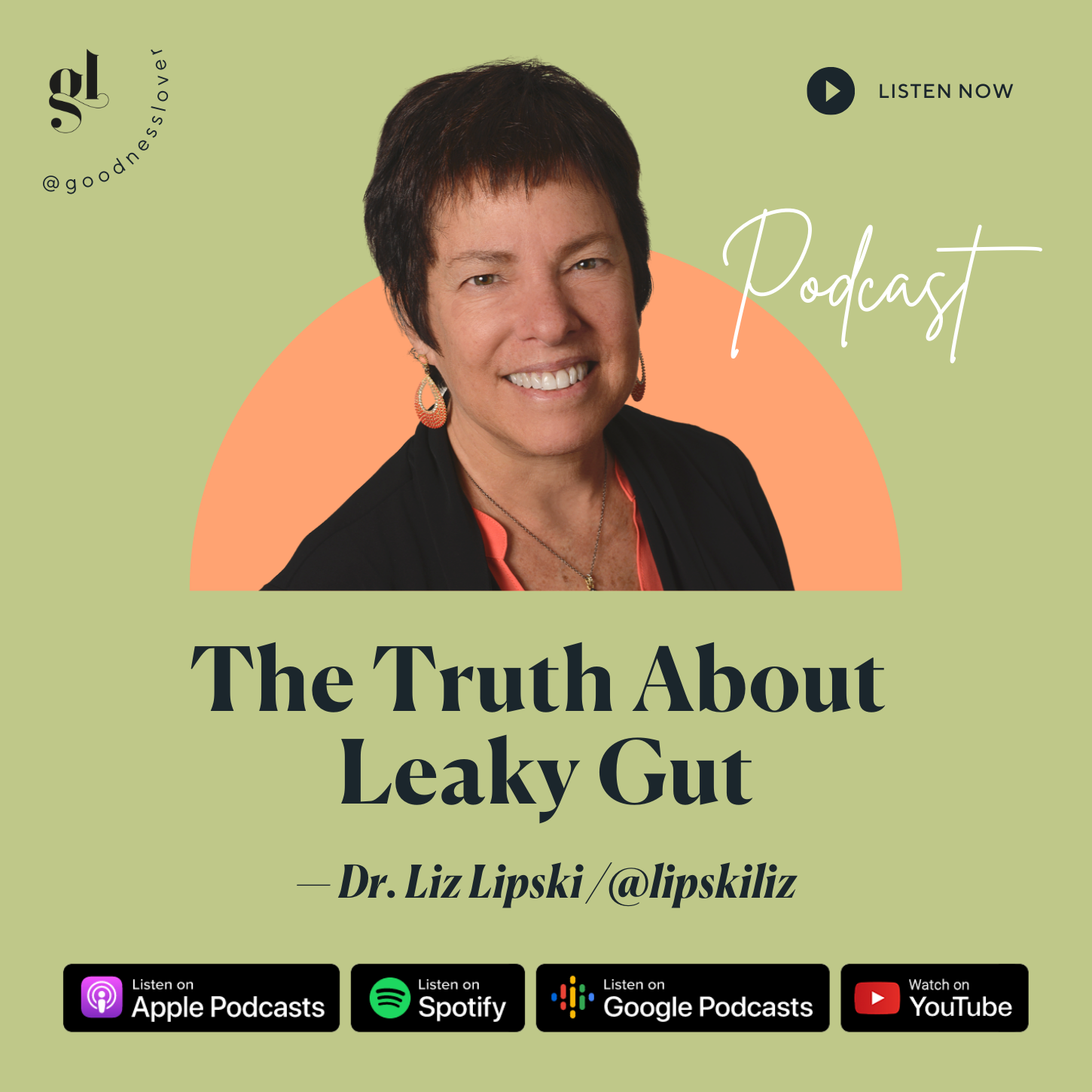




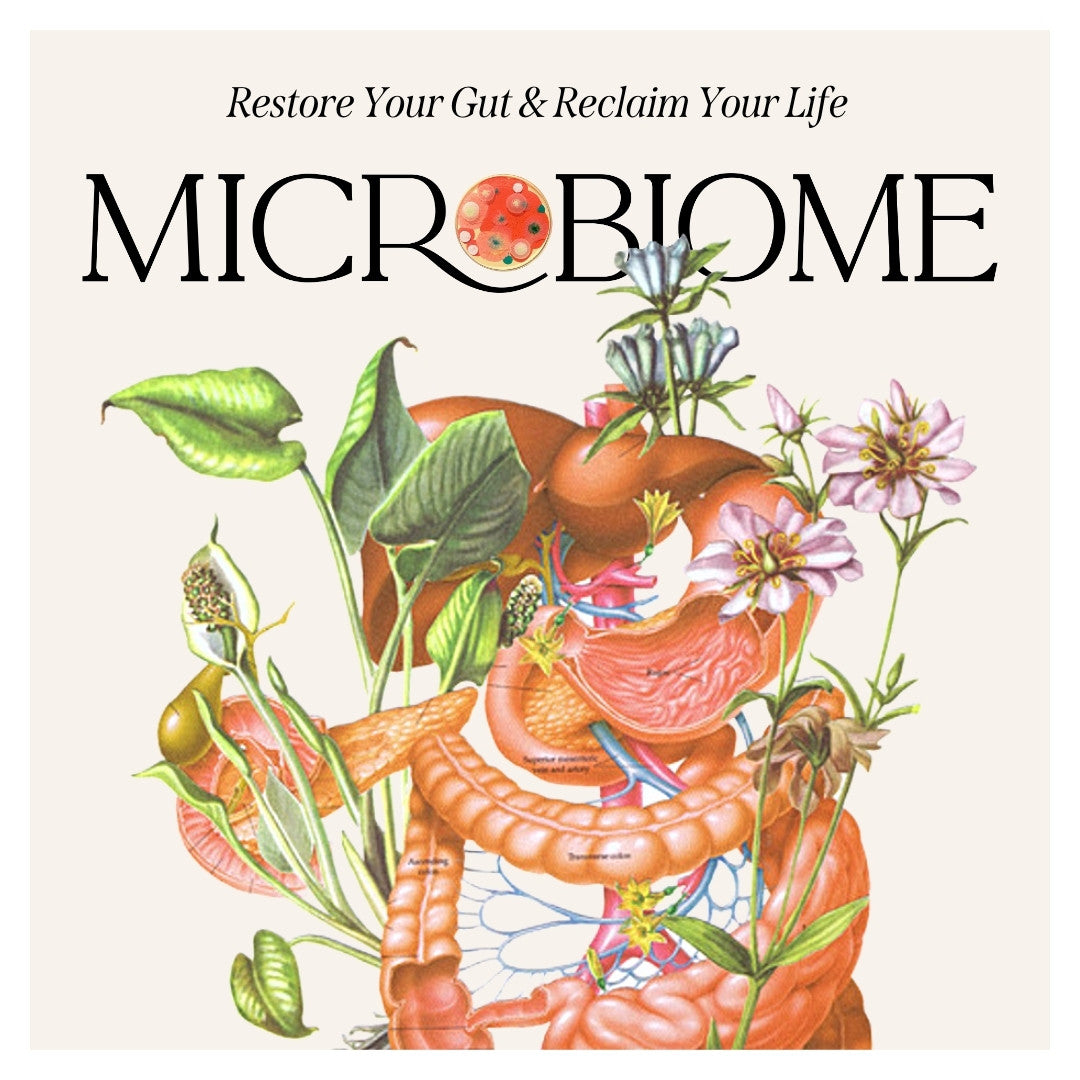

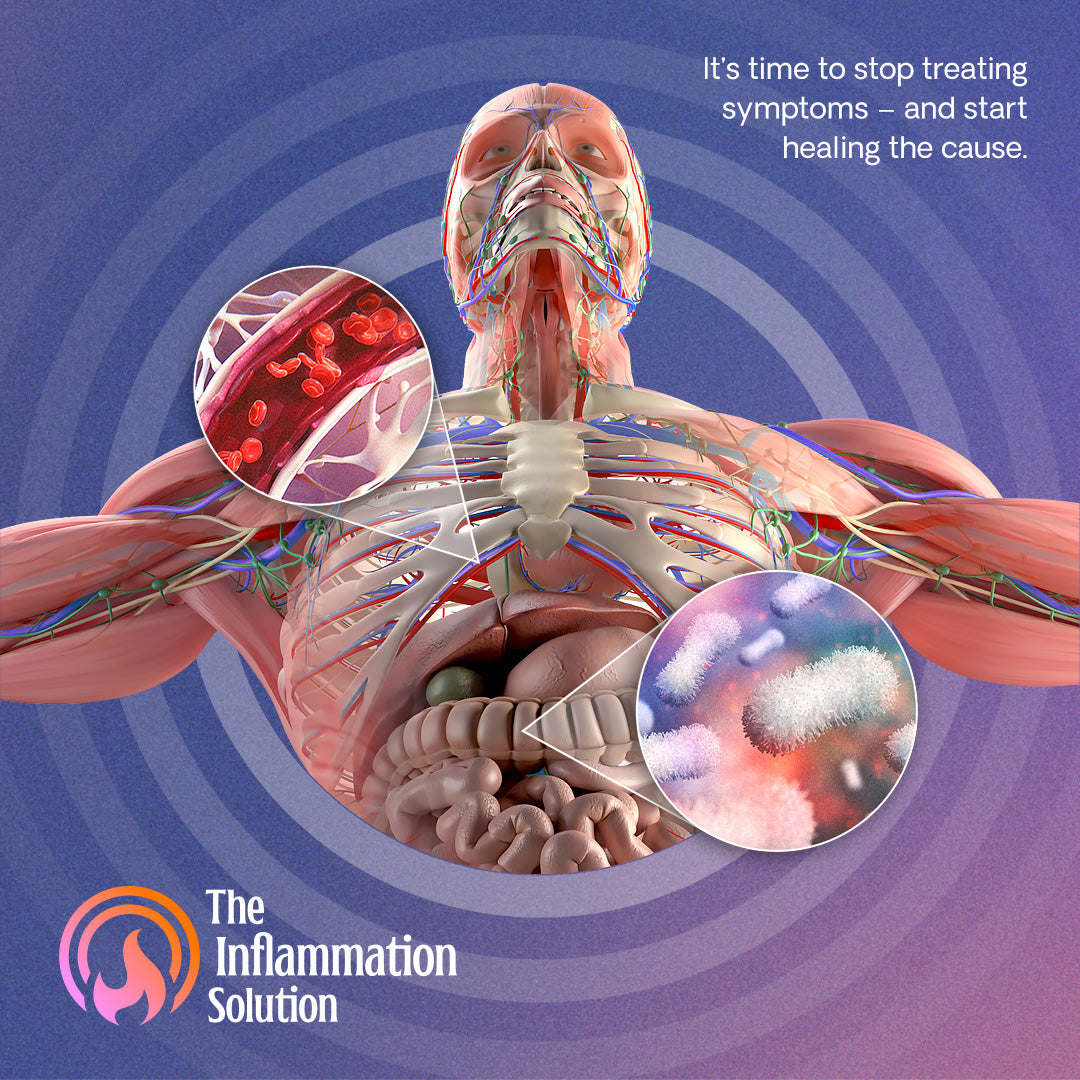

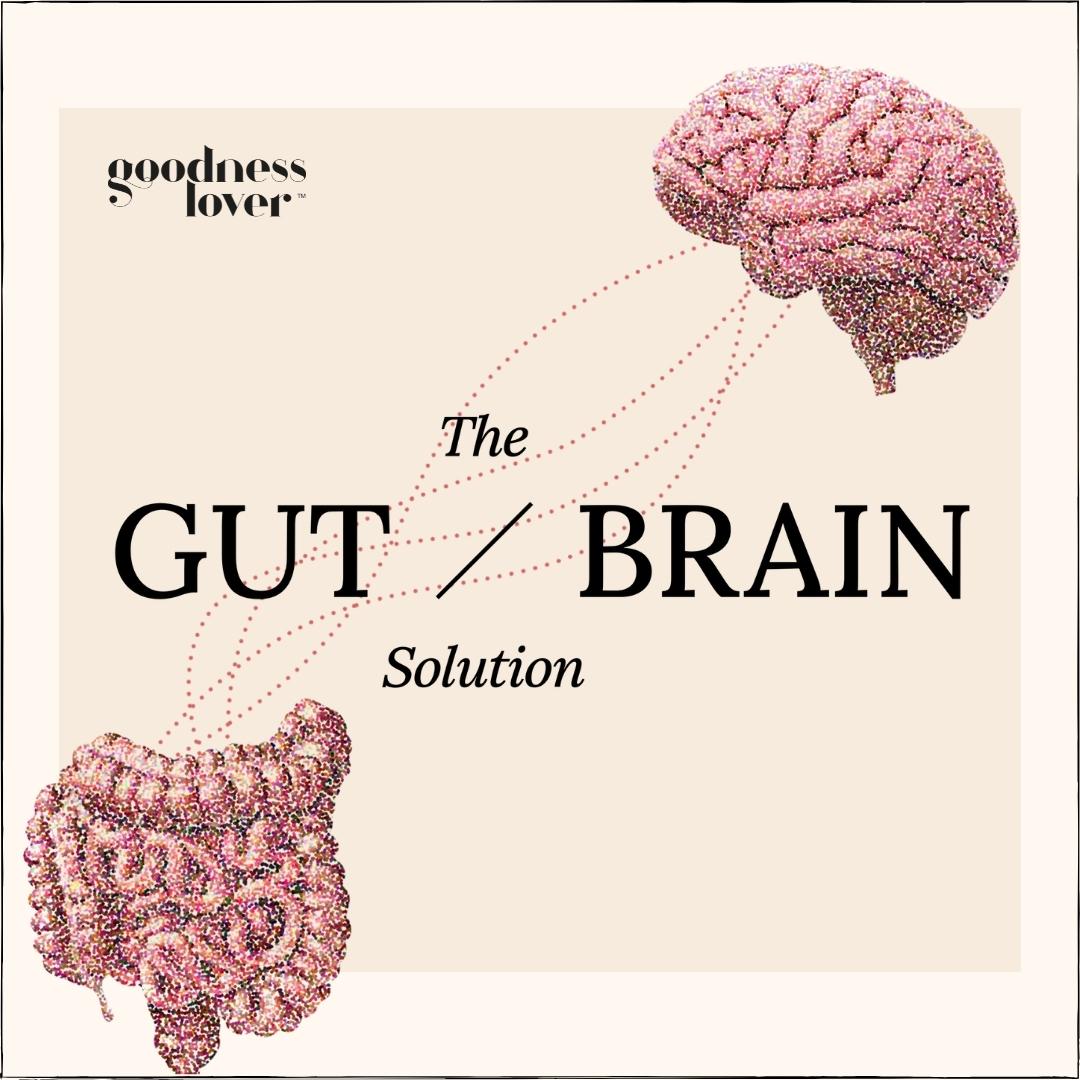

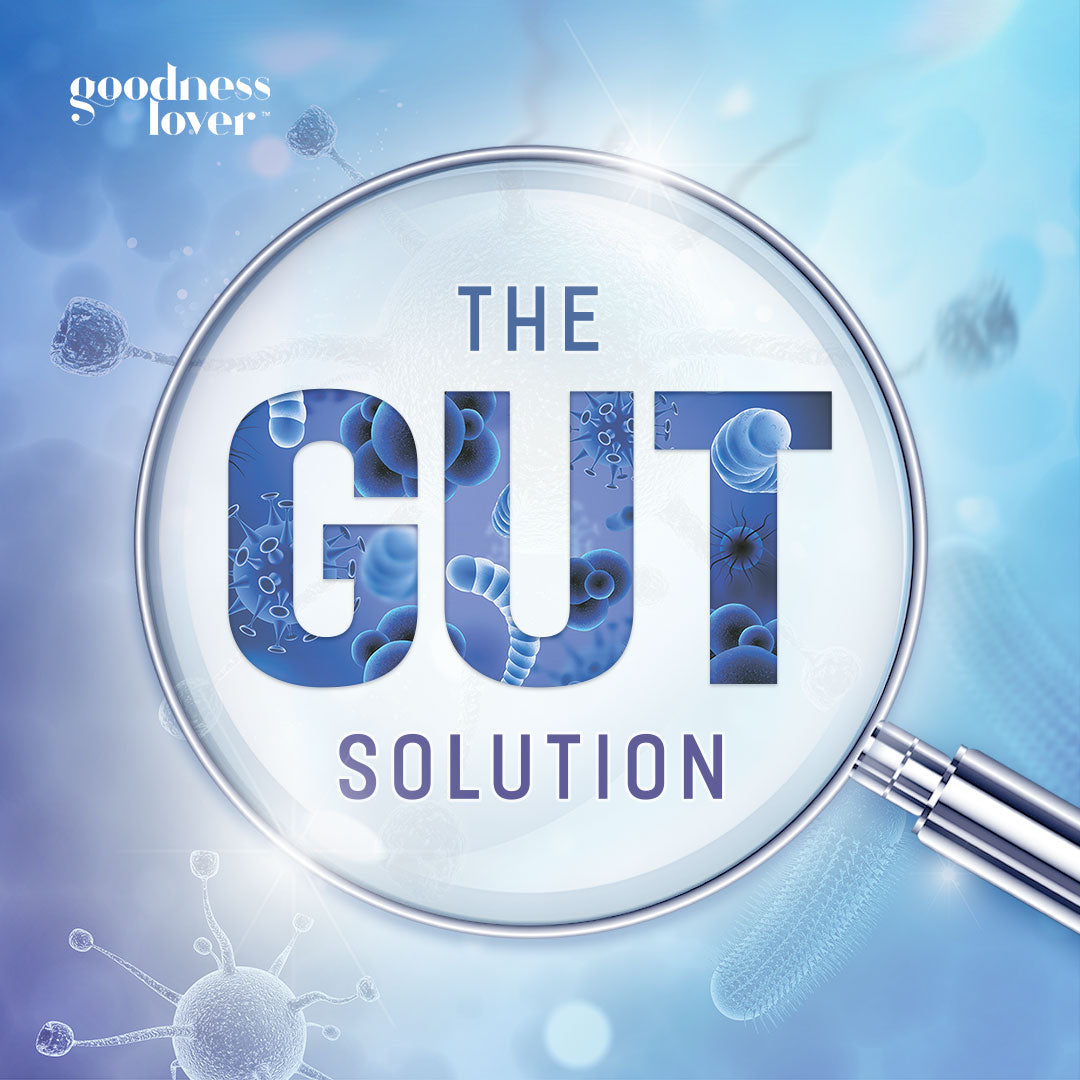
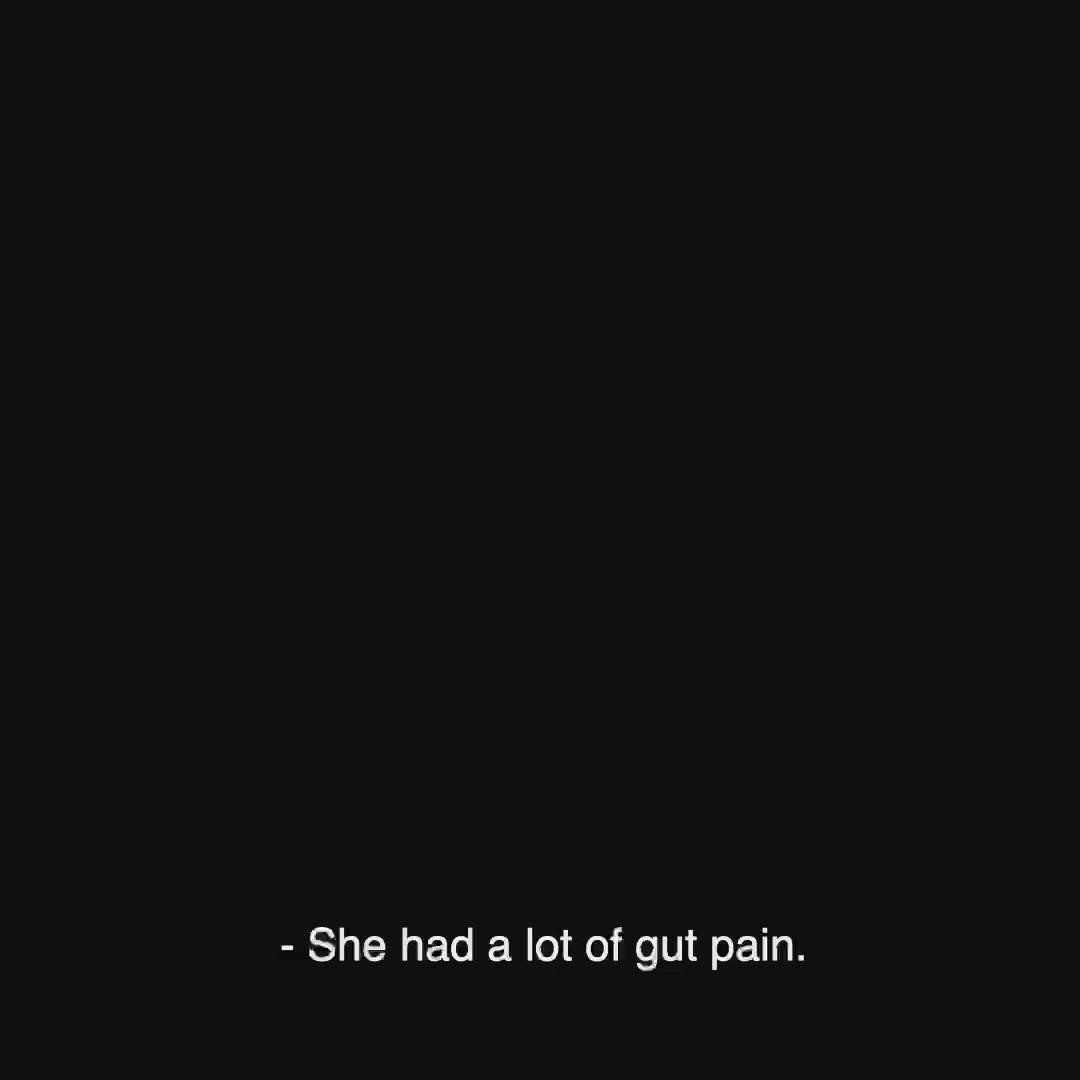
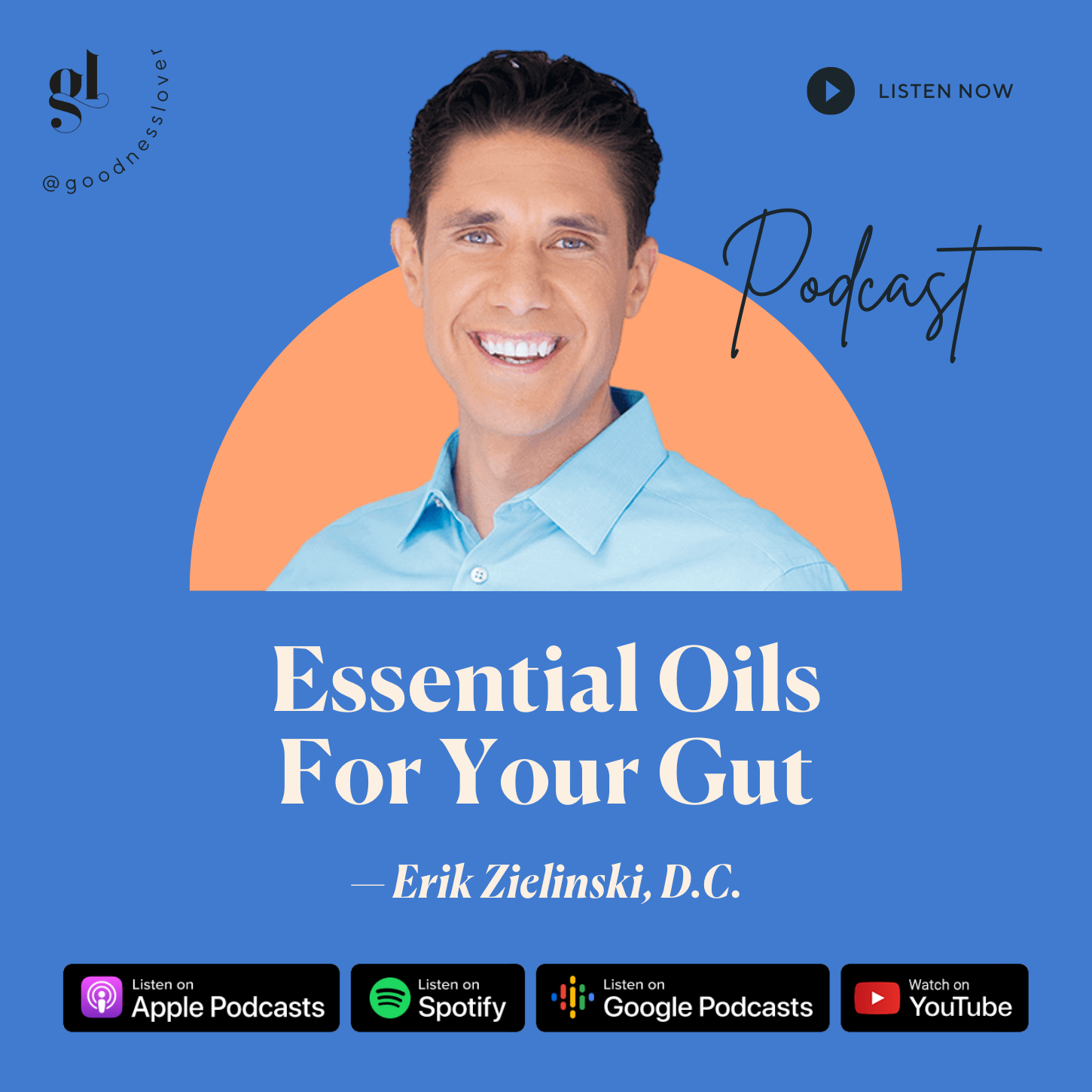
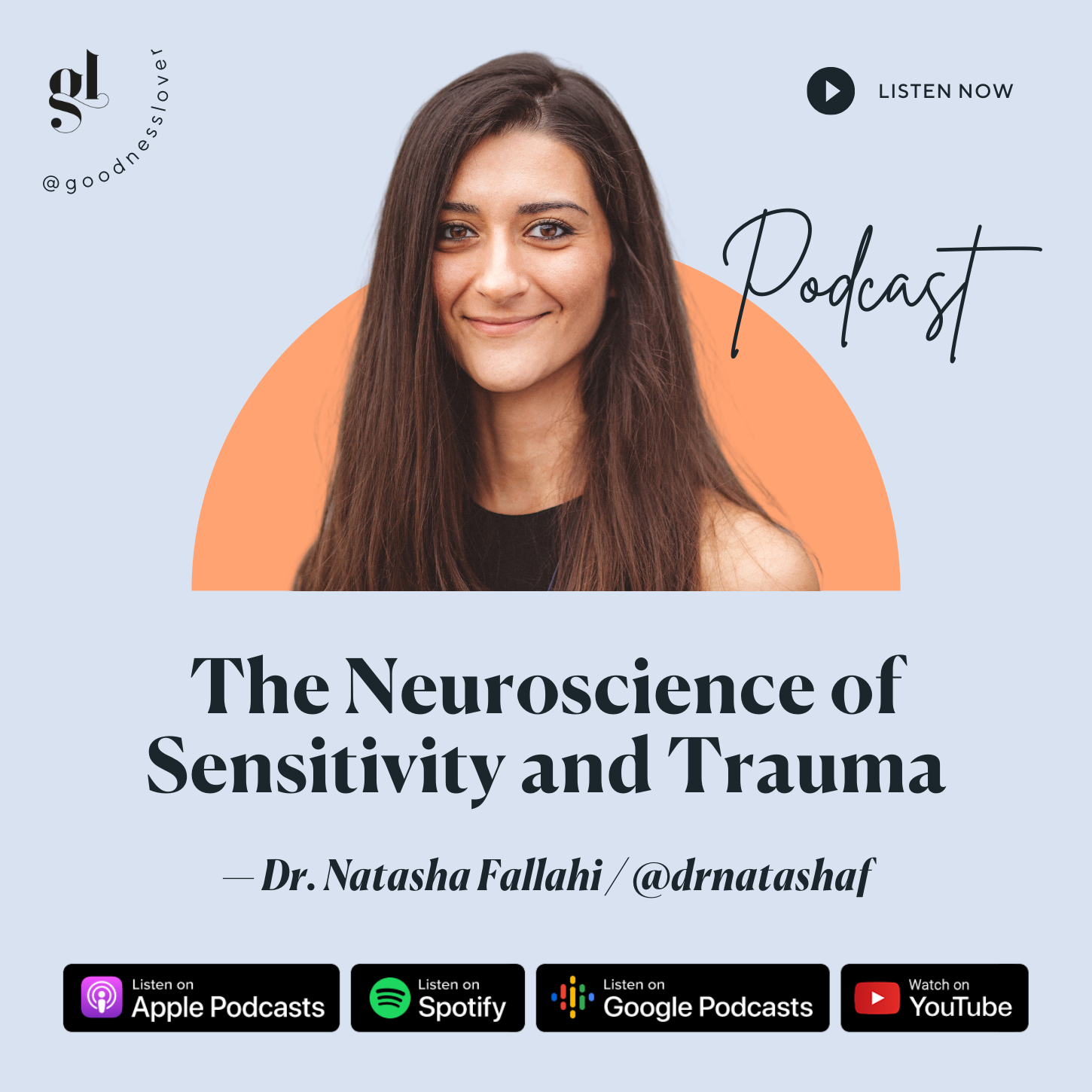

What Do You Think? Comment Below: